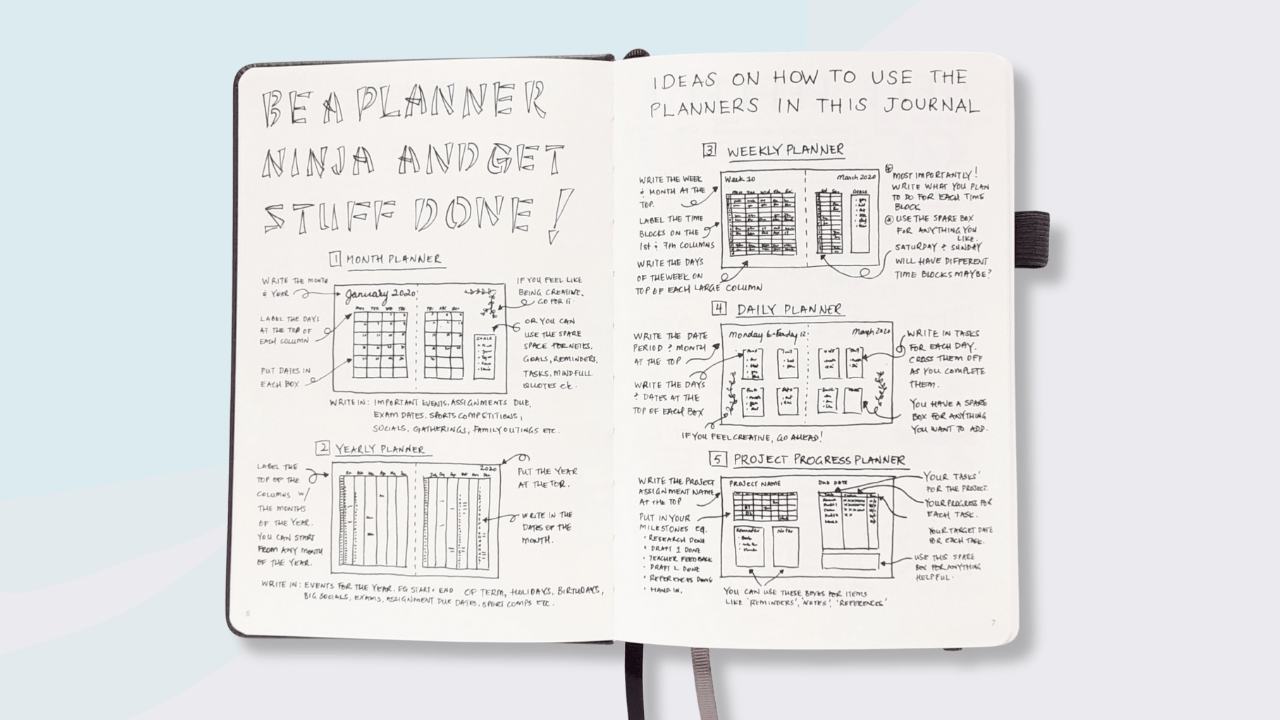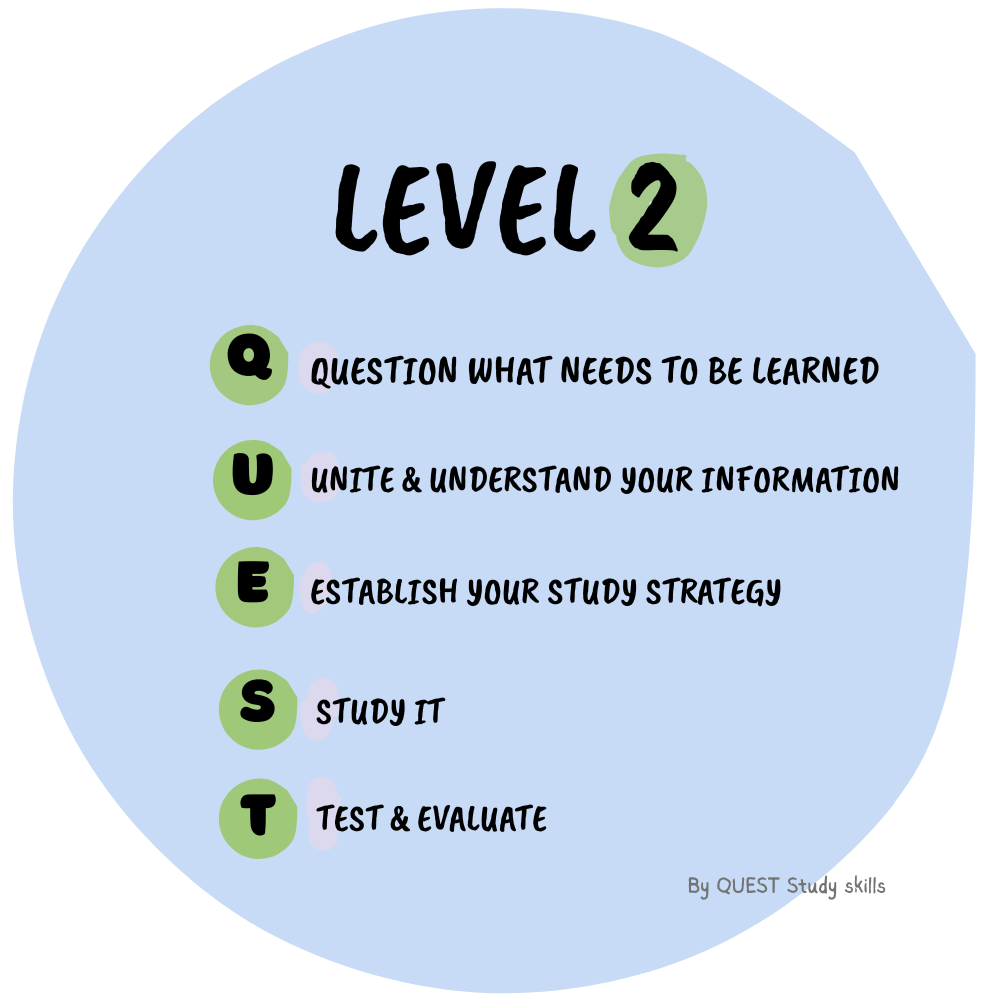The 5 student planners that actually get work done

Have you ever had one of those weeks when everything is due, nothing is organised, and your brain feels totally unhinged?
You’re not alone, and the good news is that there are tools to help. Having simple planning tools gives you the structure, clarity, and confidence to stop the chaos and start ticking things off.
Let’s break them down and show you how to build a study routine that actually works.
Why planning tools are so important
When you use planning tools correctly, they stop being boring admin and start becoming your personal sidekick. Planning tools help by:
- Keeping you on track with your study and deliverables.
- Giving your brain space and relief. You don't have to try to remember everything in your head.
- Allowing you to see what’s coming and giving you the best chance of staying calm and prepared.
- Telling you when busy period are so you can advance plan for these demanding periods.
- Ensuring you don't forget anything!
The tools: What every planner needs
Whether you're using our QUEST Study Skills Journal or starting with the free printable templates, here’s how each type of planner can help you.

Yearly Planner 🗓️
This should be your big-picture view in one view. Use it to mark out:
- Term start and end dates
- Exam blocks
- Assignment deadlines
- Birthdays, sports and hobbies
- Holidays and social events
When you can see the year at a glance, it’s easier to plan ahead instead of being caught off guard. You can also easily see busy periods where you must prepare more things in advance. You can see less busy periods, so you can do the things that you never have time for. Again, don't be caught off guard.
Monthly Planner 📅
This zooms in from your Yearly Planner to a month view. Each month gets its own dedicated space so you can track:
- Key deadlines
- Exam dates
- Important school events
- Sporting and hobby events
- Social plans and family commitments
It helps you see your super busy periods each month, and where you’ll have space to focus and plan ahead calmly.
Weekly Planner 📆
This is your repeatable structure. Think of it as your ideal week. Having a weekly planner planned out guides you through the week calmly. Use it to block out things such as:
- School hours
- After-school activities
- Homework and subject-specific study periods
- Notes creation time and study time
- Goal-related action steps (see post of Goal Settig)
- Chunks of time for rest, creativity, weekly hobbies
Having an ideal week helps you build rhythm, routine, and momentum. Use highlighters and colour codes so things make sense visually.
Daily Planner 📝
Now we get really detailed. Your Daily Planner is for each day and should includes items such as:
- To-do lists
- Specific homework for the day
- Study sessions
- Priority tasks for the day
- Reminders
It gives you focus, so you can move through the day with intention. As you complete items, check them off. The process of checking things off is very underrated.
Project Planner 📊
This one’s for big assignments or long-term goals. These big things tend to intimidate us, so use this planner to gain command and control over a big, larger-than-life thing. Remember this: projects are just a collection of small tasks that culminate into an achievement. And this Project Planner will help you get to that achievement calmly. Use it to:
- Break a big scary task into milestones
- Track progress (e.g. “Research done”, “Draft complete”, “Proofreading done”)
- Add reminders and deadlines
- Colour in or tick the progress boxes to stay motivated - this feels great.
This planner breaks down overwhelming projects into simple steps.
➡️ Where to get them
These planners are included in the QUEST Study Skills Journal, a blank bullet-journal-style planner designed for creatively productive students. You get the structure but the freedom to make it your own, with space to customise layouts, add doodles, decorate pages, and reflect on your progress.
Prefer digital? You can also download our free planning printables, available in printable PDF format, which can be filled out using a browser or tools such as Adobe.
🔰 Start wherever you are. Plan what matters.
You don’t have to use every template right away. Start with one or two, like the Weekly Planner or Project Planner, and build from there. The point isn’t to be perfect. It’s to get clear, stay calm, and make steady progress.
Happy planning! 🤩
👇While you're here...
Want to join the early Access list to the Mini Planning Course?
Stay connected with news and updates!
Join our mailing list to receive the latest news and updates from our team.
Don't worry, your information will not be shared.
We hate SPAM. We will never sell your information, for any reason.

